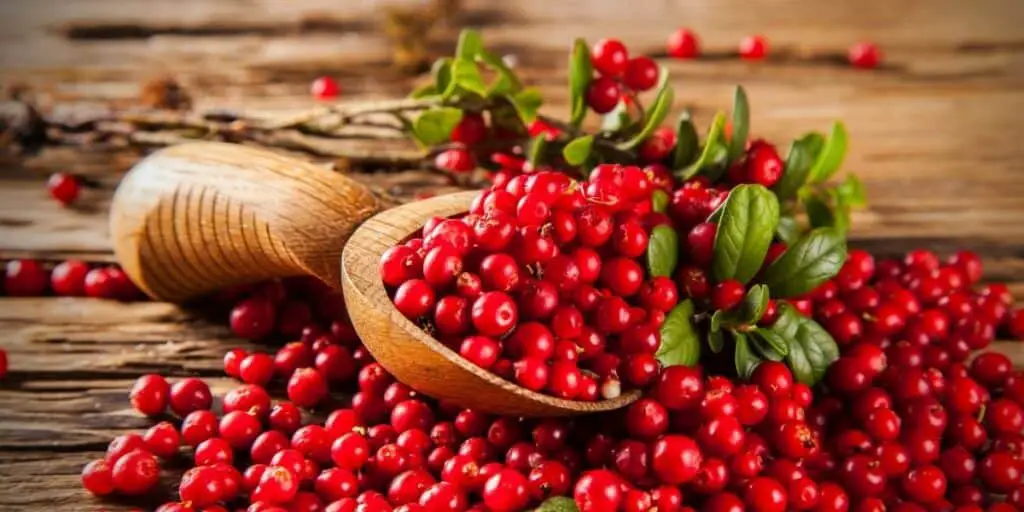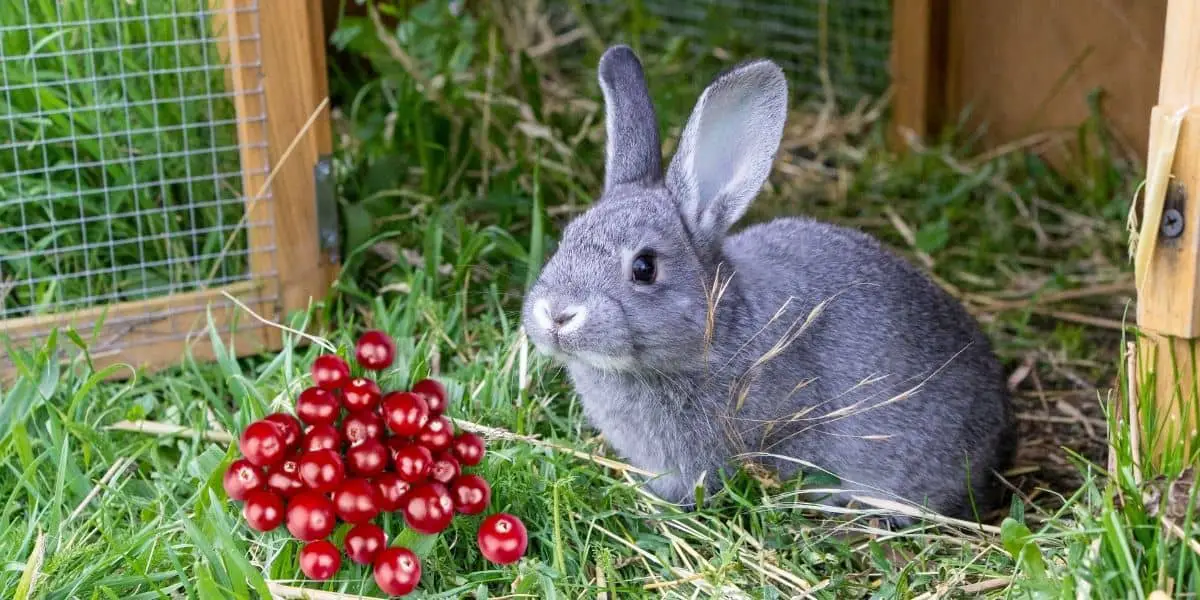One of the great things about being a rabbit owner is that you have something of a little vacuum cleaner for all your leftover fruits and veggies.
Rabbits are herbivores and love to get their teeth into a variety of plant-based foods.
While their diet should consist mainly of hay, offering them a treat of fruit is something that will be rewarding for your bun.
While some fruits like cucumbers and apples are often given freely, there are others that owners are a little more uncertain about.
So, can rabbits eat dried cranberries?
It is OK for a rabbit to eat cranberries but these small fruits have a high level of acid which can be irritating to the gut if they are eaten in large quantities. Moreover, dried cranberries typically have a lot of added sugar which we know isn’t good for rabbits. For this reason, it is advisable to treat cranberries as an occasional snack, limiting your rabbit’s intake of them to once a week.
Knowing how to properly treat you rabbit is a key aspect of being a rabbit owner.
While dried cranberries might not be the healthiest snack for your bunny, there are other foods that will be much more suitable as a treat.
Table of Contents
My Rabbit Ate Cranberries; Is This OK?
Eating dried cranberries isn’t going to kill your rabbit but they aren’t the most nutritious snack you could offer.
If your rabbit has been eating these fruits as a regular treat or even as part of his daily diet, we would suggest removing this food and replacing it with something else.
There is no real reason to worry about your rabbit’s health provided that he is eating, drinking and toileting as normal.
With sugary foods, rabbits are more susceptible to gaining weight, so if your bun has been looking a little tubbier than usual, this could be why.

Moreover, if your rabbit gets used to eating sweet, sugary foods, this may discourage him from eating the foods that are nutritionally beneficial to him such as hay.
Hay should make up to 80% of your rabbit’s diet and if he is ever sick, we would recommend reverting back to a hay only diet.
This is all your rabbit needs, and while he may eat green veggies and the occasional snack, he certainly won’t suffer without them.
Are There Health Benefits To Rabbits Eating Dried Cranberries?
While they may be high in natural sugars, cranberries aren’t all bad.
These fruits contain good levels of fibre which is excellent for digestion, when eaten in moderation.
Can Rabbits Eat Other Dried Fruits?
Aside from cranberries, there are many other dried fruits that your rabbit might enjoy.
Once again, this is OK but you should make sure to only do this once or twice a week.
Things like dried apple, pineapple, and mango are excellent treats and your rabbit will certainly love the taste.
Raisins are widely available and these are a good way to give your bunny a treat that is packed with vitamins and minerals.
Once again, though, you should keep in mind that, just like dried cranberries, raisins are very high in sugar so just a small helping from time to time is best.
What Are The Best Fruits For Rabbits?
If you want to offer your rabbit a tasty treat from time to time, the best thing you can do is to provide him with vegetables as these will have the most nutritional value.
Things like broccoli, carrot, parsnip, bok choy, watercress, fennel, spouts and a range of herbs are all excellent for bunnies.
While fruits should only be offered once or twice a week, it is perfectly OK to provide veggies on a daily basis; just make sure that your pet still has lots and lots of fresh hay.
We use 1st cut timothy hay which is available from your local pet store or Amazon.com Link here.
In terms of fruit, rabbits love a large range but since each bunny is different, you will notice that your pet has his favorites.
Here is a guide to the amount of sugar in certain fruits:
| Fruits | Per 100 Grams |
|---|---|
| Apples | 10 g |
| Bananas | 12 g |
| Grapes | 16 g |
| Kiwi | 9 g |
| Pineapples | 10 g |
| Pumpkin | 3 g |
| Watermelon | 6 g |
| Avocados | 0.7 g |
| Passion Fruit | 11 g |
Typically, apples, grapes, peach, pear, and orange go down a treat with rabbits but you might find that your pet has a slightly more exotic taste and favors things like pineapple, watermelon, and papaya.
Rabbits also love to eat berries and cherries.
You should always make sure that you remove the stone from cherries before giving them to your rabbits.
Things like strawberries, blueberries, and raspberries are also good treats.
However, much like cranberries (dried or fresh), these contain a lot of natural sugars and so should be given in moderation.
Are There Any Foods That Are Poisonous To Rabbits?
Rabbits will give anything a go when it comes to food so you must be careful about what access your rabbit has to food stores in the home.
If you have a house rabbit who is more than a little curious, there is every chance that he will try to explore any titbits that are lying around.
While most foods won’t cause your rabbit too much bother, there are some that should be avoided entirely.
Foods like chocolate, yogurt, legumes, pasta, sugar, potatoes, and rhubarb should never be given to a rabbit as they can be difficult to digest and may make your rabbit very sick.
In the event that your rabbit does eat a food that he shouldn’t, report this to your vet immediately.
Conclusion
Rabbits are not very fussy eaters and will give anything a go once.
However, this doesn’t mean that all foods are suitable for our furry friends and it is up to us as owners to ensure that they have a healthy and balanced diet.
Dried cranberries are suitable as a treat but with high levels of sugar and high acidity, they aren’t the healthiest snack.
For this reason, you should only offer them a couple of times each week as part of a balanced diet.
There are many other foods that rabbits can have as a treat that is more nutritious including several different types of vegetables.




